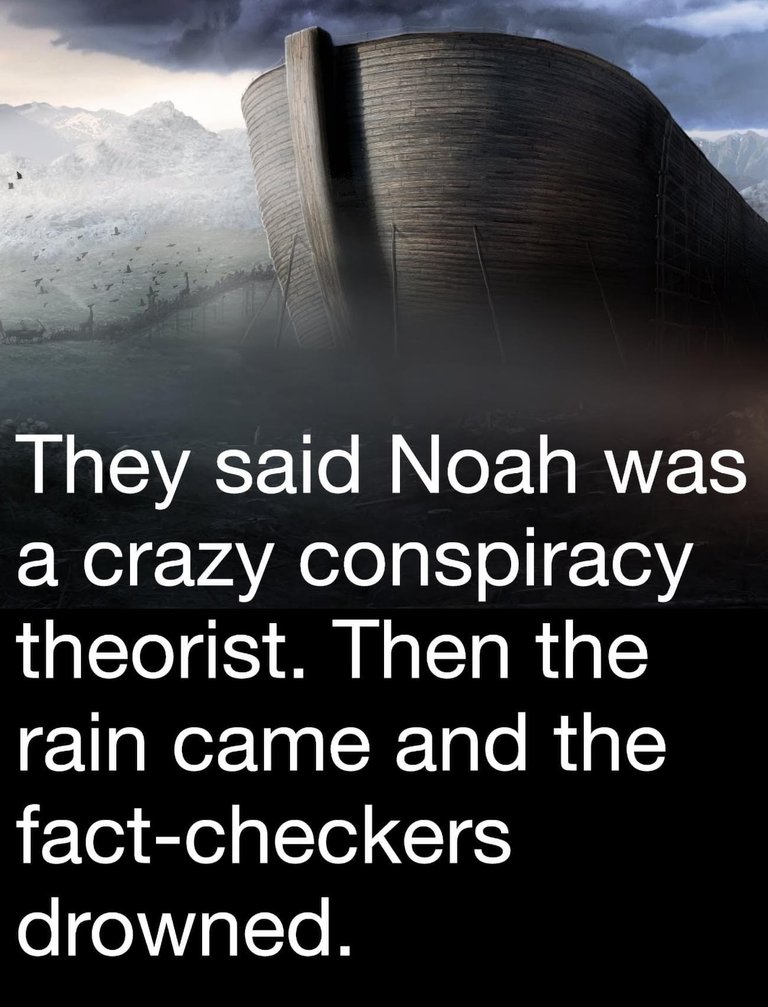What It Means Excursion refers to a trip, and especially to a short one made for pleasure. Excursion is also often used figuratively to refer to a deviation from a direct, definite, or proper course, and often in particular to a digression.
//Some of Maya’s most cherished childhood memories are of fishing excursions with her grandpa.
//Lewis Carroll’s Through The Looking Glass is an excursioninto a fantastical world where nothing is what it seems to be, and everything appears to be what it is not.
Nodepay miners, Season 2 has been finalized regarding points earned. However, there is still no indication regarding how many NC tokens I will receive. Season 3 is in full swing! #depin #cent #sapphirecrypto
Still more seasons to come... keep mining, connect your Solana wallet and socials to get your proof of humanhood badge under "Medal & Boost" on your dashboard.
#InLeo now has 13,000 users which is huge for us and will only continue to grow. I'm buying and staking and supporting the DHF proposal because the price will continue rising #outreach
Found the phone. Samsung Galaxy A10, the model number is SM-A105FN/DS
Software version for carries include "NEE" (I believe this means it's the nordic/scandinavian model)@luchyl
I've found some ways to have data, too, but they're quite expensive, so I don't think that's something you'll want provided from me 😅
Oh, Samsung Galaxy, my dream phone 😅. How I wish it wasn't of such model would have gone for it. It's really going to cost much to put it in use here.
I appreciate the kind gesture and effort.
Unfortunately it's one of the older models.
It's the best funtioning phone I have around that's not in use.
I hope you get your dream phone soon 😃
What phone is it? And can you check what the price is for that phone? 😆
That's a kind effort from you, but I think the shipping price is a problem here. If one has that amount in Africa, it can buy a modest android phone. I bought mine at an amount equivalent to $85 when converted from local currency.
Feel free to share all entertainment updates across the world
Entertainment shorts and long videos are welcome
You can paste the link of any video and invite your friend to join you to watch it as discussion goes on
You can invite friends and make a chat section as you enjoyed your activities on Leo, different entertainment activities are welcome
Don't forget to subscribe to @mightpossibly, so you can be able to use the #aisummaries tool to feed in YouTube entertainment video on this cast.
On Inleo, a reblog will show up in the following feed of people that follows you, so it kinda is more effective to reblog another user's post, or your own if they have been posted a while before
Here's an opportunity for you to win some free Gifu; all you need to do is perform some simple tasks on X. You can read more about it via the link below.
It's all good here. From the looks of it, I am just going to be getting a bunch of rain with some snow mix. It's not going to get cold enough to do any real freezing.
INLEO is killing it with blockchain metrics:
Vote for the DHF Proposal if you need numbers to keep going up 🚀
#leo2025
Word of the Day on Leo - excursion
What It Means
Excursion refers to a trip, and especially to a short one made for pleasure. Excursion is also often used figuratively to refer to a deviation from a direct, definite, or proper course, and often in particular to a digression.
//Some of Maya’s most cherished childhood memories are of fishing excursions with her grandpa.
//Lewis Carroll’s Through The Looking Glass is an excursioninto a fantastical world where nothing is what it seems to be, and everything appears to be what it is not.
🔗 Source in comments
🔗 Source:
https://www.merriam-webster.com/dictionary/excursion
Nodepay miners, Season 2 has been finalized regarding points earned. However, there is still no indication regarding how many NC tokens I will receive. Season 3 is in full swing! #depin #cent #sapphirecrypto
I joined in few days ago, not hoping for anything
Still more seasons to come... keep mining, connect your Solana wallet and socials to get your proof of humanhood badge under "Medal & Boost" on your dashboard.
Okay. Sadly my X account is suspended
Different route today #unning
Sweet capture.
thank you! Yeah it is great to have some nature nearby !duo !lolz
Thank you for the tip.
You just got DUO from @rainbowdash4l.
They have 2/2 DUO calls left.
Learn all about DUO here.
lolztoken.com
hot or cold?, Hot, because you can easily catch a cold.
Credit: reddit
$LOLZ on behalf of rainbowdash4l
(2/10)
Farm LOLZ tokens when you Delegate Hive or Hive Tokens.
Click to delegate: 10 - 20 - 50 - 100 HP@bamfy, I sent you an
Thank you.
Thank you @rainbowdash4l
I love replying to threads than making one so I can tip out those #bbh and #dook tokens.
@pepetoken will often say "Feels good man" 😅
#freecompliments #thread2earn
You tipped me yesterday. Thank you
Beautiful, here's another one
!BBH
Its feels good when I eat some frog legs with @logen9f, we planned eating some pepe frog legs for lunch 🤣🤣🤣..
No tip for you, but the tip of Kermit's toes man.
Hahaha 🤣🤣🤣, I know you will always come around 😉😉. I've been missing you my dear pepe, how have you been?
Enjoy your frog
You are specially invited to come on!!!
Hahaha 😂
This is a beautiful night. We didn't plan to do this, but I did it with my idea so that we can gather together with our family.
 #liketu #familyfriends
#liketu #familyfriends
I'm experimenting with visuals for music
Digital #art
#meme #leo #cent
She's right 🤣
!DOOK
🤣🤣😅😅🤣
LET'S see her belly too and know what she looks like...
Maybe a breakfast 🤣🤣..
Big head
Thats my name sake 🤣🤣🤣🤣..
very accurate
Sure.
Buy #gifu and everyday will be a green day.
hahaha...you got hit
Too much boom, lol
Next time use a barricade #fren
#InLeo now has 13,000 users which is huge for us and will only continue to grow. I'm buying and staking and supporting the DHF proposal because the price will continue rising #outreach
Found the phone. Samsung Galaxy A10, the model number is SM-A105FN/DS
Software version for carries include "NEE" (I believe this means it's the nordic/scandinavian model)@luchyl
I've found some ways to have data, too, but they're quite expensive, so I don't think that's something you'll want provided from me 😅
Shipping price is less than $70
Oh, Samsung Galaxy, my dream phone 😅. How I wish it wasn't of such model would have gone for it. It's really going to cost much to put it in use here.
I appreciate the kind gesture and effort.
Unfortunately it's one of the older models.
It's the best funtioning phone I have around that's not in use.
I hope you get your dream phone soon 😃
What phone is it? And can you check what the price is for that phone? 😆
I hope so too. I'm looking at Infinix or Redmi phones, but will let you know which I decide based on my budget too.
Thank you
That's a kind effort from you, but I think the shipping price is a problem here. If one has that amount in Africa, it can buy a modest android phone. I bought mine at an amount equivalent to $85 when converted from local currency.
I just stated the shipping price, I previously told her she can just say what she wants to cover and I'll cover the rest 😊
Do you have a link to one of the higher end phone models? Would be cool to compare prices
Hi, @caspermoeller89,
This post has been voted on by @darkcloaks because you are an active member of the Darkcloaks gaming community.
Get started with Darkcloaks today, and follow us on Inleo for the latest updates.
#meme #funny #jokeonleo
lmfao
hehehehe
😂
🤣🤣🤣
yes i am here meeting up to encourage each other and to restrategized for the year
Just found zootopia in real life
log out and log back in
Have done it over and over again. Still not working. I even use different browers
OH. No idea then.
#feedback my thread is not highlighting if I was to comment on people's posts. Please what should I do? Someone should help me ooo.
In this case, I use the enter key or spacing and it will Index.
Let me try it out

Thanks so much. Wow 😲 😳
It works?
Beautiful. Is that you in the picture?
Try doing a linebreak (click enter, and delete again if you wish). Sometimes that helps
Thanks 🙏, it's really working now. Am happy 😁 😊.
I'm hitching to resume writing but I still feel pains in my neck. Hopefully, it heals totally tomorrow so that I can resume to doing what I love.
I guess you must have been bending over phone to work for a ling time to have neck pain. It has happened to me in the past also.
Poor you. I know the feeling. Just give yourself time to heal properly, you can always resume writing anytime.
!HUG
Thanks for the kind words.
"Even if you're sure you can win, be careful that you can live with what you lose." - Gary Keller
#quote #inspiration #leothreads #life
Yesterday night. I wish we had this weather on christmas!! ❄️
#weather #yesterday #impressions #snow
Just the right amount of snow! Still a great view to start the new year.
True! It was very beautiful. I went straight outside with my dog and my girlfriend. :D
Hi, @bitcoinflood,
This post has been voted on by @darkcloaks because you are an active member of the Darkcloaks gaming community.
Get started with Darkcloaks today, and follow us on Inleo for the latest updates.
what part of the world?
Ahh I get that. Where do you live? Well we barely have snow, so I always love to see it. But it never lasts long.
Buenos días homosapiens! #spanish
Jajajajajajajajaja
Leo Entertainment Threadcast
Don't forget to subscribe to @mightpossibly, so you can be able to use the #aisummaries tool to feed in YouTube entertainment video on this cast.
09/01/2025#threadcast #leoentertainment #mcb
This should be a party house, I guess...
OH yeah 👍👍👍, it's all another entertainment... So you are free to have fun with anything on this threadcast 🥰🥰🥰...
Yeah. Do we need some sips, what do we cruise with?
Can comedy be accepted there too?
!summarize #lotr
!summarize #lotr
!summarize #lotr
Subscribe for me
They don't gift it, you just need to do the subscription from your account 🤣🤣.
Send me HBD to do it then
!summarize #primerecap
!summarize #primerecap
!summarize #primerecap
!summarize #primerecap
!summarize #primerecap
!summarize #primerecap
!summarize
!summarize #primerecap
!summarize #primerecap
!summarize #primerecap
!summarize #primerecap
!summarize #primerecap
!summarize #primerecap
!summarize #primerecap
!summarize #primerecap
!summarize
!summarize #primerecap
!summarize #primerecap
!summarize #primerecap
!summarize #primerecap
!summarize
!summarize
!summarize #primerecap
!summarize #primerecap
!summarize #primerecap
!summarize #primerecap
!summarize #primerecap
!summarize #primerecap
!summarize
!summarize
!summarize
!summarize
!summarize
!summarize
!summarize
!summarize
!summarize
!summarize
!summarize
!summarize
!summarize
!summarize
!summarize
!summarize
!summarize
!summarize
!summarize
!summarize
!summarize
!summarize #primerecap
!summarize
!summarize #primerecap
!summarize
!summarize #primerecap
!summarize #primerecap
!summarize #primerecap
!summarize #primerecap
!summarize #primerecap
!summarize #primerecap
!summarize
!summarize #primerecap
!summarize #primerecap
!summarize #primerecap
!summarize #primerecap
!summarize #primerecap
!summarize #primerecap
!summarize #primerecap
!summarize #primerecap
!summarize #primerecap
!summarize
!summarize #primerecap
!summarize #primerecap
!summarize #primerecap
!summarize #primerecap
!summarize #primerecap
!summarize #lonlovitz #lisakudlow #hollywood #actor
!summarize #lotr
!summarize #lotr
!summarize #lotr
!summarize #lotr
!summarize #lotr
!summarize #lotr
!summarize #lotr
!summarize #lotr
!summarize #lotr
!summarize #robertconrad #television #hollywood
!summarize #martinsheen #robertelee #headquarters #civilwar
!summarize #donnyosmond #michaeljackson #music
!summarize #jerryleelewis #bride #child #music
!summarize #cinema #hollywood #unitedstates
!summarize #cassandrapeterson #elvira #elvis #horror
!summarize #nashville #musician #burnout #schedule #music
!summarize #johnfogerty #music #ccr
https://inleo.io/threads/view/onealfa/re-leothreads-2uttrmsrr
The winter is coming back in Europe...
#life #winter #snow
After Christmas? I thought that season is only at the ending of the Year
it's almost like God turned in light mode on the streets 😂😂 everything is white out there
Love the snow, and i have never seen it.
Also had some white blankets outside !IDD
Yo! I made my first reblog. I reblogged my own post.
What it the implication of reblogging posts?
#newlion
On Inleo, a reblog will show up in the following feed of people that follows you, so it kinda is more effective to reblog another user's post, or your own if they have been posted a while before
Like "share" workson Facebook.
That's great. Thank you for being a part of my teacher on inleo
#meme #newlion #wrongmove
Here's an opportunity for you to win some free Gifu; all you need to do is perform some simple tasks on X. You can read more about it via the link below.
#gifu #giveaway
https://inleo.io/@gifu/-earn-500-free-gifu-with-this-simple-twitter-task--w5?referral=gifu
We're having a nasty winter storm here. Roads closed. I think this truck driver gets a bonus day off! Time to spam InLeo with my deranged thoughts.
They say it's on the way to me... Not looking forward to it, haha.
For goodness sakes be careful!
It's all good here. From the looks of it, I am just going to be getting a bunch of rain with some snow mix. It's not going to get cold enough to do any real freezing.
Do you still get paid for days off like that? or only if you're on the road? I don't know much about the trucker life.
I don't get paid if I'm home. If I'm out away from home and get stuck, then I get paid.
we are facing a similar situation here last night was very cold that I have to take my kids out to to a safer place
Stay warm Joseph!
Bring it on! 😁
Absolutely!
Thursday is a pivot, not a pit stop—step boldly forward and transform the ordinary into the remarkable.
!INDEED #bfom !BBH
Lets’s Go My Bro!!! 💪🏽🦁 #bfom
sure it's really a good motivational speech with all out lion moving together
🦁🤘🏽
@bradleyarrow likes your content! so I just sent 1 BBH(6/100)@jimmy.adames! to your account on behalf of @bradleyarrow.
(html comment removed: )
)
Are you DePIN mining Nodepay? The NC token is up 26% today in pre-market trade while the rest of the market tanks. #cent #depin #sapphirecrypto
The bull is not over yet. Lions lurking in the snow, waiting for warmer weather! 🦁
#aiimages #aiart #aiartonleo #cent #lion
Let me take that from you.
Good morning from Africa
My investments are with great #coins they'll comeback.
Not afraid of buying here
Not afraid of crash.
I'll watch everything go to zero than being on the sidelines waiting for some miracle to happen that'll change #life.
that's how crypto works 😁
Ice cream season is here. What is your favorite flavor? #foodies, #icecream, #summer, #foodtalk
Strawberry 🍓
Good morning world of #Hive! You already smiled today? Do not let a moment pass without smiling because life needs your smile! Hugs!
#santiagodecuba #inleo #inleoVibes #CoffeeAndSmiles #cent #bbh
Hive is increasingly on more exchanges #liotes #bbh #cent
Price $ETH #hive #eth #cent #gifu
Anyone suggesting #spacelaser as cause for the newest fires in #california? #cent
1/2 Good morning people! Incredible post value after only 21 hours! Thank you guys sooo much!!! 💜 #threadstorm #hive #post #music #gmfrens
#threadstorm #hive #post #music #gmfrens
👉 Post in reply.
2/2 Check out my upload on 3Speak - my last Halloween song! :) https://inleo.io/@ravenmus1c/daqtycqi Thanks for voting guys!!!
#threadstorm #music #votevalue #hive #hivecontent #art #raven
Lol, this one is so good! #meme #memes #leomemes #notmymeme
I can't seem to find the publish button on the side panel. Is it just me or long-form publications is now strictly for premium subscribers?
its just you, not a premium feature :)
Fixing 🇩🇪 state won’t happen by blaming 16,000 so-called job refusers. The real change comes from tax structure #Tax #deception #politics
When will the new election be? Its a important election for entire EU.
Near the end of #february.
🐓 Good ☀️ Morning 🐔 everybody 🐓
good morning liquid more tea
I'm getting this kind of dog problems, I need help
She definitely quoted Eminem
I asked the librarian if the library had books on paranoia. She whispered, 'They're right behind you
If there's a way, there's a will
#meme
Virus ain't got nothing on this lady
Hahahaha. Never seen this meme before. It's very funny
https://img.inleo.io/DQmfGC1xsC2BDJYqnLhsG4Q5fXbqkNEVTuPecWq5gR8mqH4/Simple%20Galaxy%20Background%20Daily%20Quote%20Instagram%20Post%20(1).png
I'd pay to hear what she said at that moment.
I'd bet it was perfect silence.
GM
What a pose for the morning
Good morning Mr. Cock. You got an interview this morning? I bet youd get picked for the job in those glasses.
I mean who can resist this look.
Good morning, love your reading glasses as they levitate above the nose. 😆
Gm my guy! Trust you're having a great Thursday
Good morning. Dressed for work?
You look sharp. Have a good day.
👆🏽This must be his dad! 👇🏽
https://inleo.io/threads/view/moretea/re-leothreads-2cponwtmz?referral=moretea
GM!
Have a nice day.
Haha looks like my old reading teacher from elementary.
is that Kudi? looks like my bird I call KUDI
Good morning